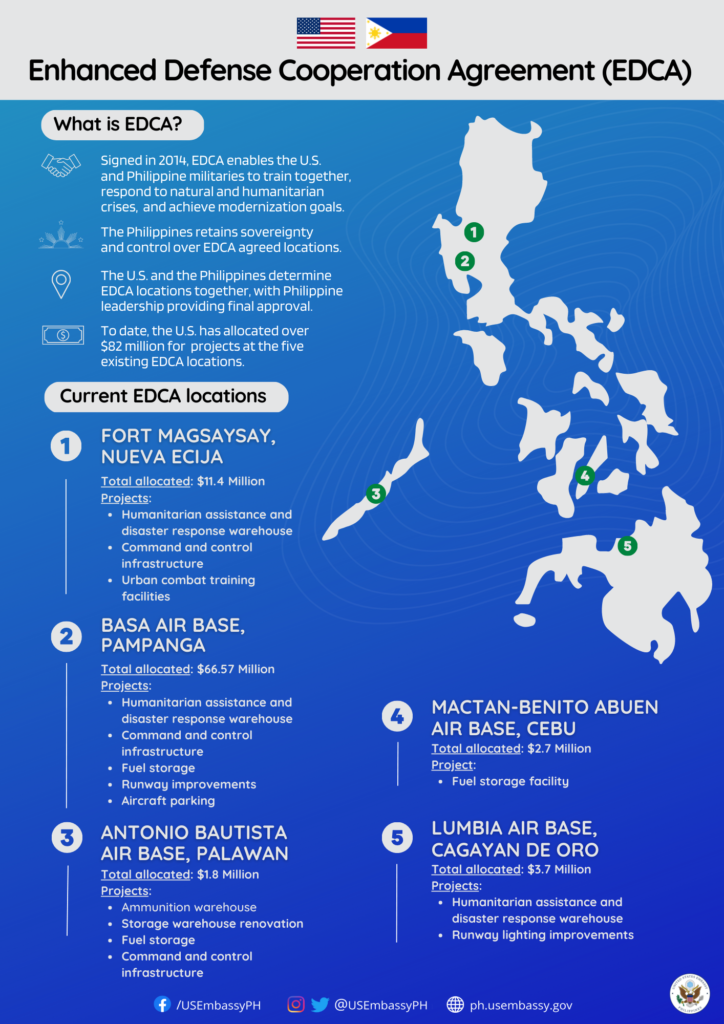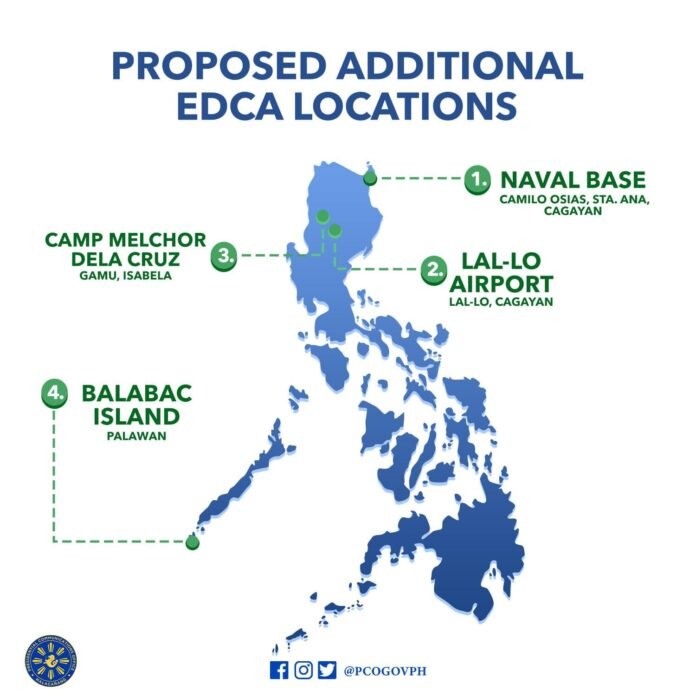Over the years, the Philippines has been a strategic location for military bases due to its geographical position in Southeast Asia. One significant development in this regard is the Enhanced Defense Cooperation Agreement (EDCA) between the Philippines and the United States. In this article, we will delve into the history of the EDCA sites, discuss the recent joint training exercises, and examine the benefits and disadvantages of this agreement for the Philippines.
The Old Base and the New EDCA Sites

Before the EDCA, the Philippines hosted the Subic Bay Naval Base and Clark Air Base, which were once the largest overseas military installations of the United States. However, these bases were closed in 1992, marking the end of a significant era in Philippine-American military relations.
Fast forward to 2014, the EDCA was signed, allowing the United States to have access to five designated locations in the Philippines. These sites include Antonio Bautista Air Base in Palawan, Basa Air Base in Pampanga, Fort Magsaysay in Nueva Ecija, Lumbia Air Base in Cagayan de Oro, and Mactan-Benito Ebuen Air Base in Cebu.
Recent Joint Training Exercises and Allied Involvement
The EDCA has paved the way for increased cooperation and joint training exercises between the armed forces of the Philippines and the United States. These exercises aim to enhance the capabilities of both nations and promote regional stability.
One notable joint training exercise is the Balikatan, which means “shoulder-to-shoulder” in Filipino. Balikatan is an annual military exercise that focuses on humanitarian assistance, disaster response, and counterterrorism. It involves not only the Philippines and the United States but also other allied countries such as Australia and Japan. This multilateral approach strengthens the defense capabilities of the participating nations and fosters closer ties among them.
Benefits and Disadvantages of the EDCA for the Philippines
The EDCA has both advantages and disadvantages for the Philippines. Let’s explore them:
Benefits:
- Enhanced Defense Capabilities: The EDCA provides the Philippines with access to modern military equipment, training, and expertise from the United States. This helps bolster the country’s defense capabilities and improves its ability to respond to various security challenges.
- Regional Security: The presence of the United States in the region through the EDCA contributes to the maintenance of peace and stability in Southeast Asia. It serves as a deterrent to potential aggressors and promotes a rules-based international order.
- Economic Opportunities: The EDCA brings economic benefits to the Philippines through increased trade and investments. The presence of American military personnel and their families also stimulates local economies near the EDCA sites.
Disadvantages:
- Sovereignty Concerns: Critics argue that the EDCA compromises Philippine sovereignty by allowing foreign troops and equipment on Philippine soil. They fear that this could lead to a loss of control over national security decisions.
- Environmental Impact: The establishment of military facilities may have environmental consequences, such as habitat disruption and pollution. It is crucial for the Philippines and the United States to address these concerns and prioritize sustainable practices.
- Political Sensitivities: The presence of foreign military forces can sometimes be a sensitive issue, especially in a region with complex geopolitical dynamics. The Philippine government must navigate these sensitivities carefully to maintain positive relationships with neighboring countries.
In conclusion, the EDCA has transformed the military landscape in the Philippines, reviving the partnership between the Philippines and the United States. The joint training exercises and increased defense cooperation have undoubtedly brought benefits to the Philippines, such as enhanced defense capabilities and regional security. However, it is essential to address the concerns surrounding sovereignty, environmental impact, and political sensitivities to ensure a balanced and mutually beneficial agreement.





